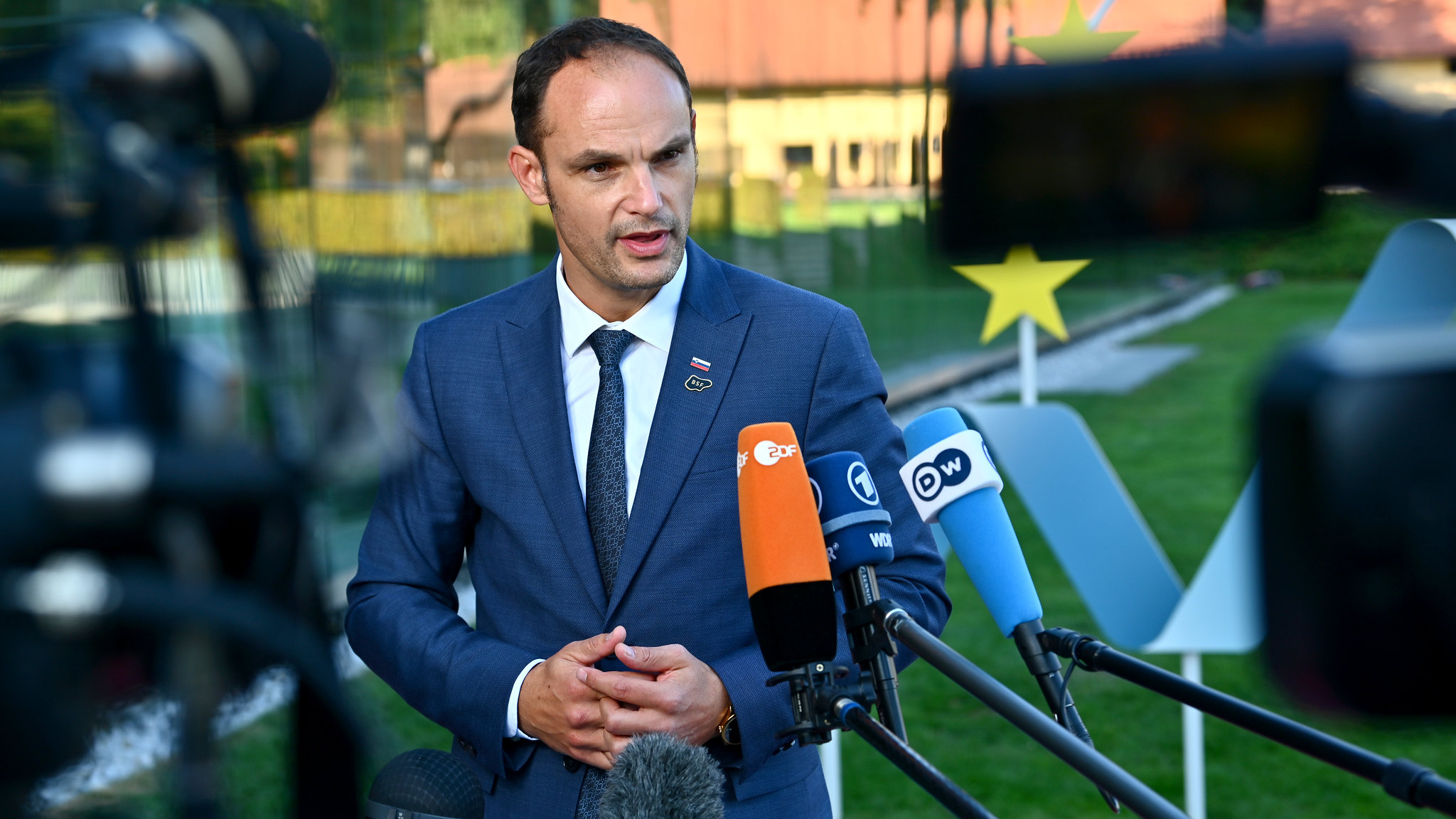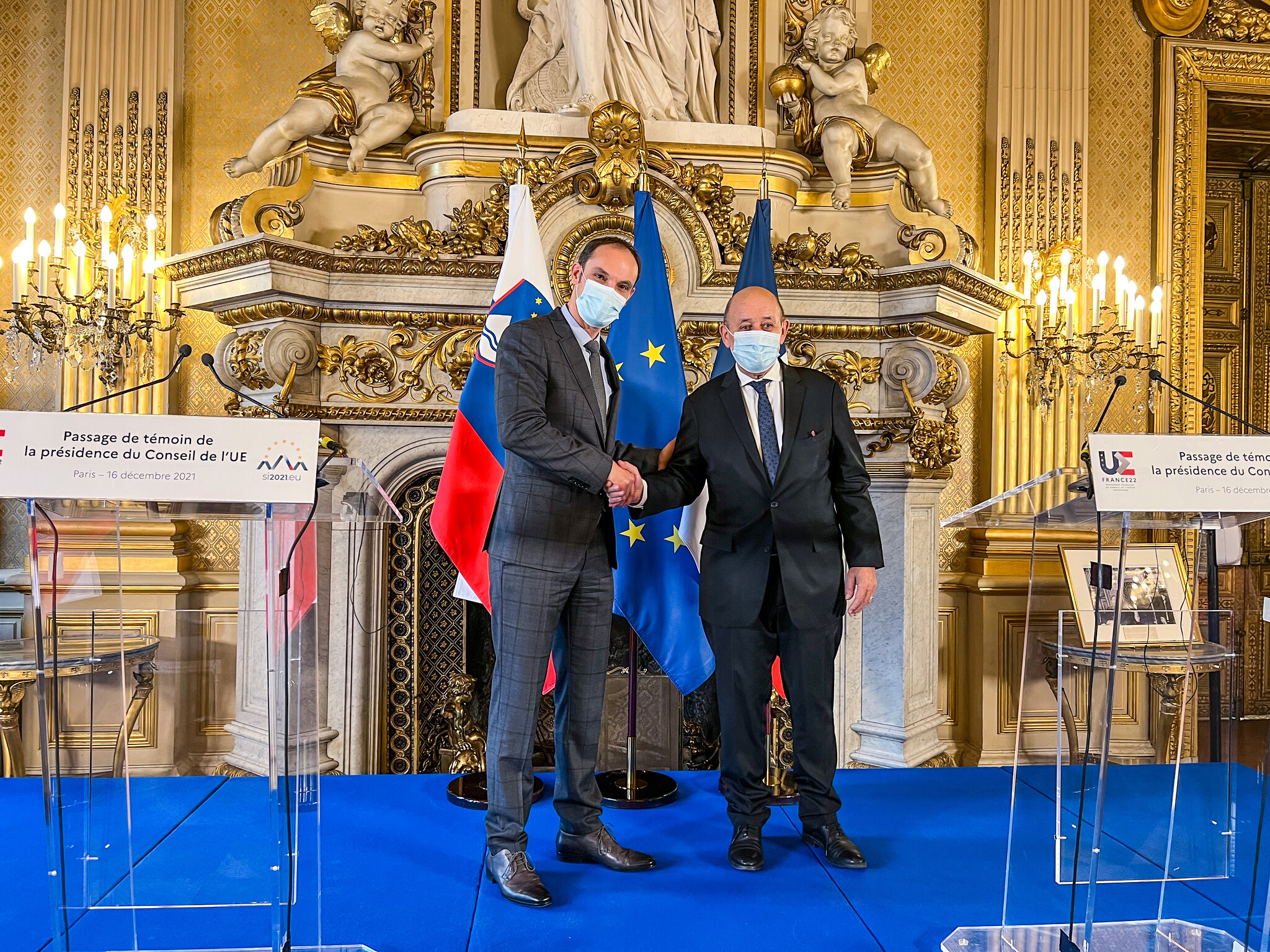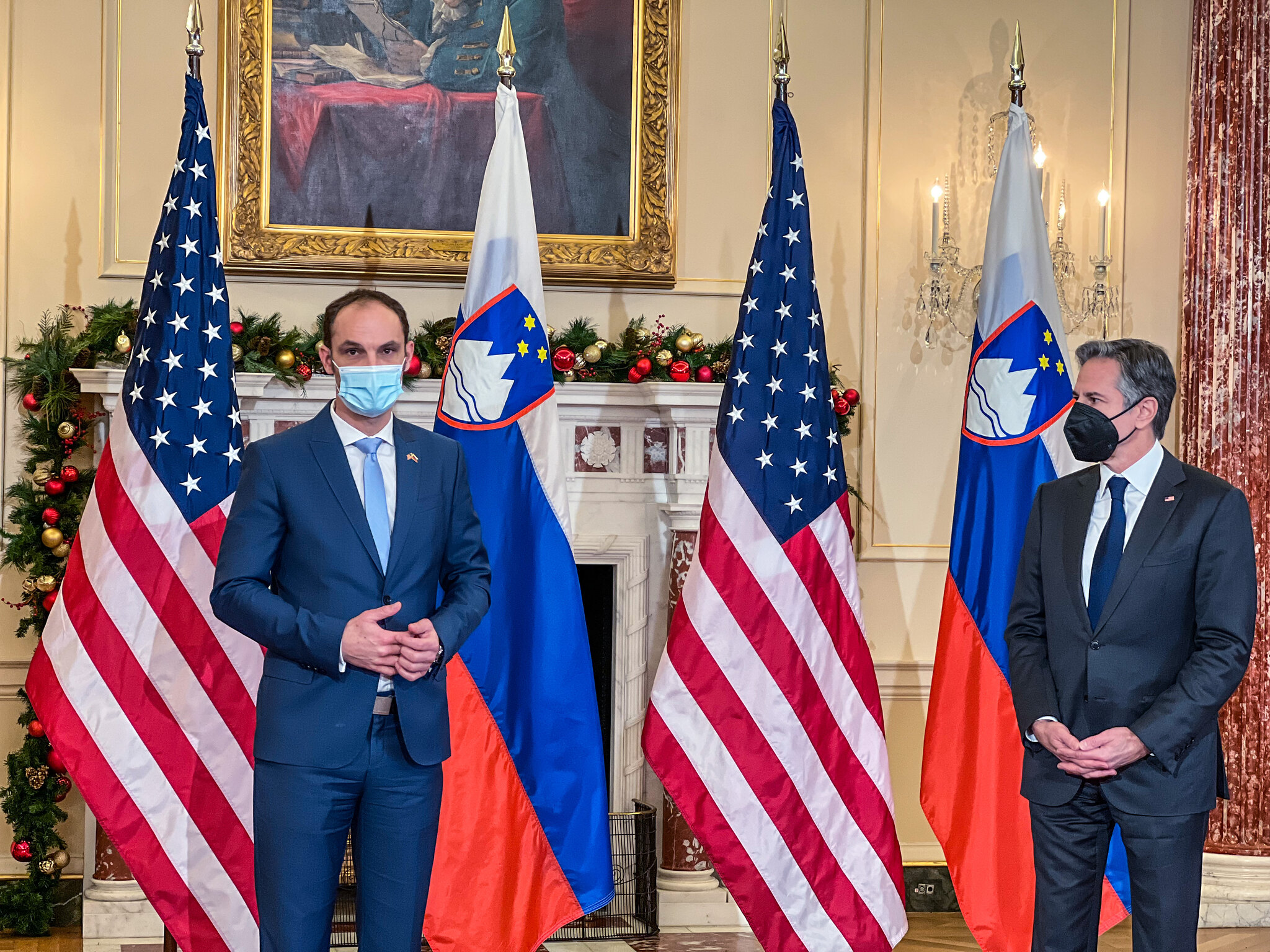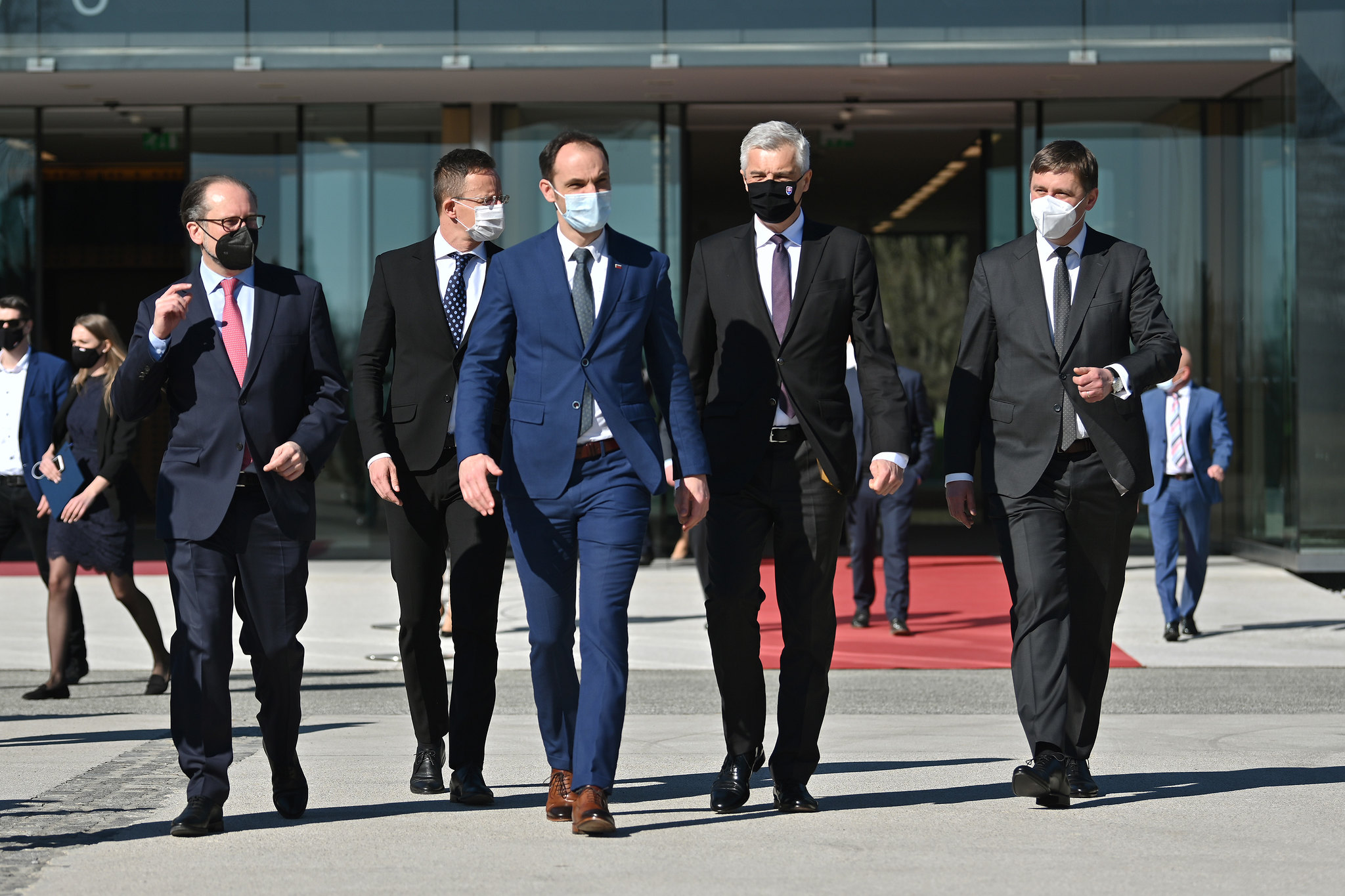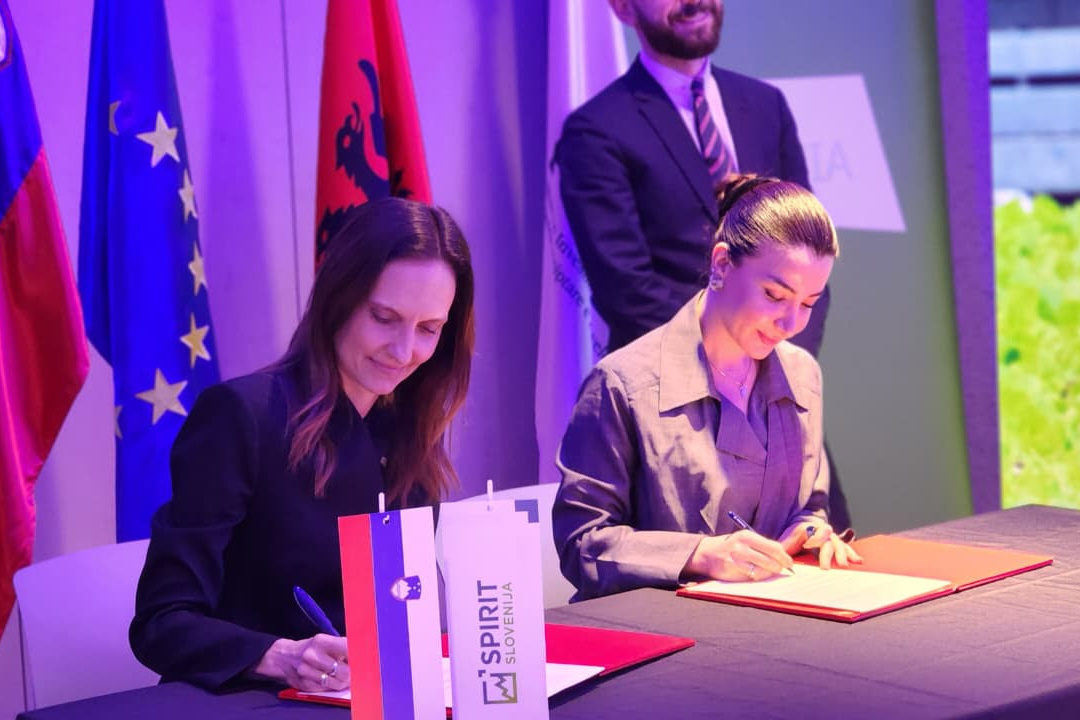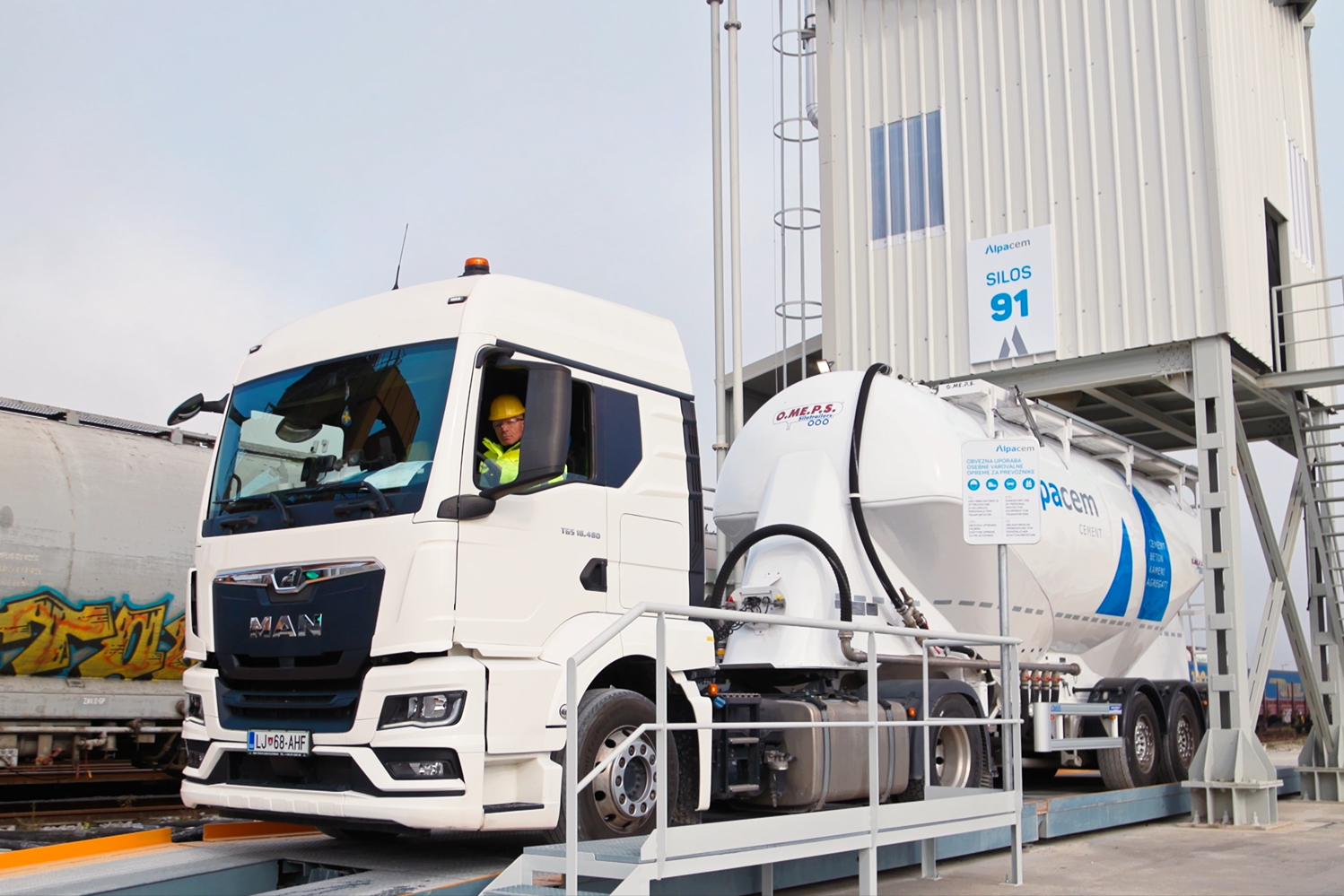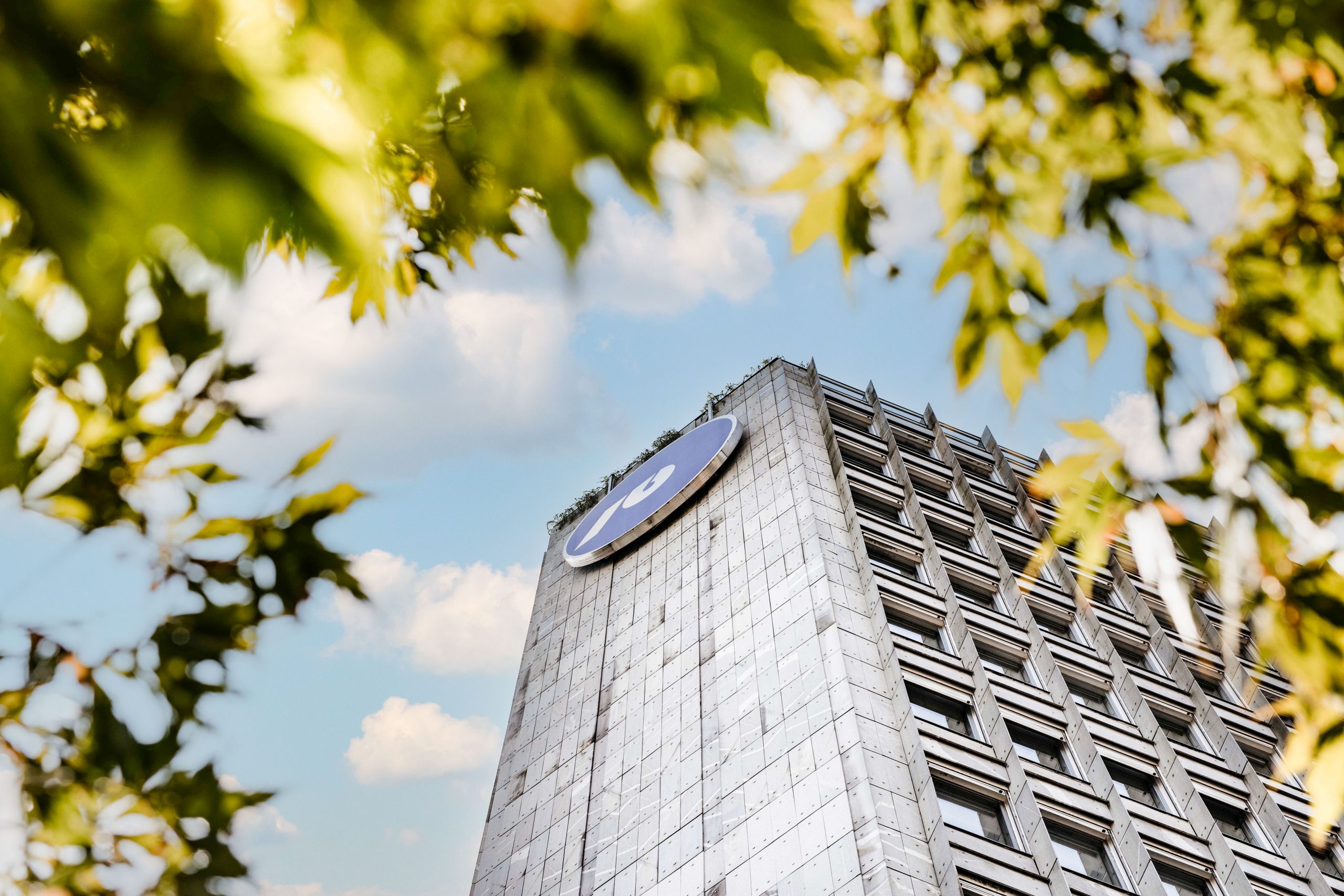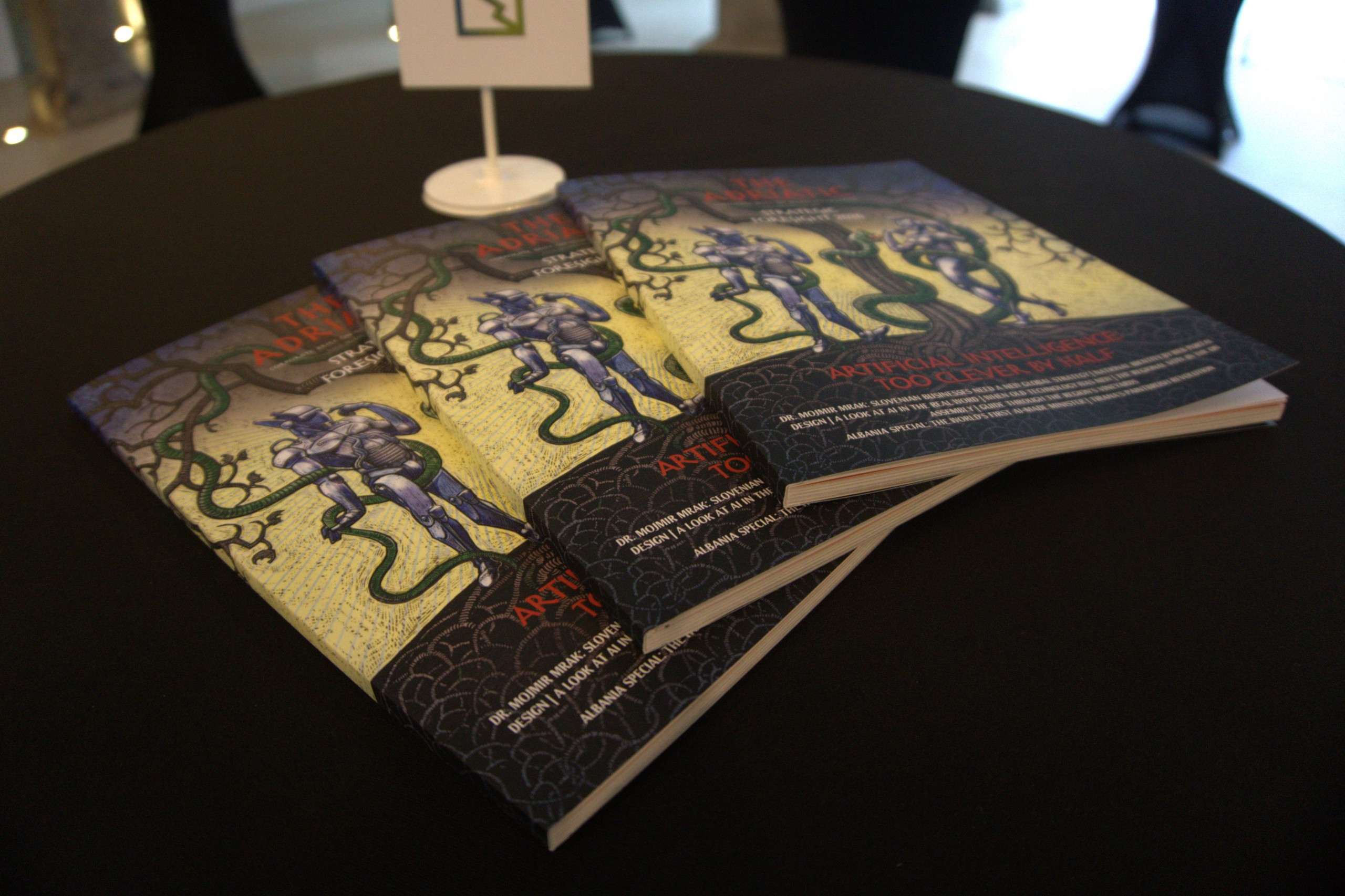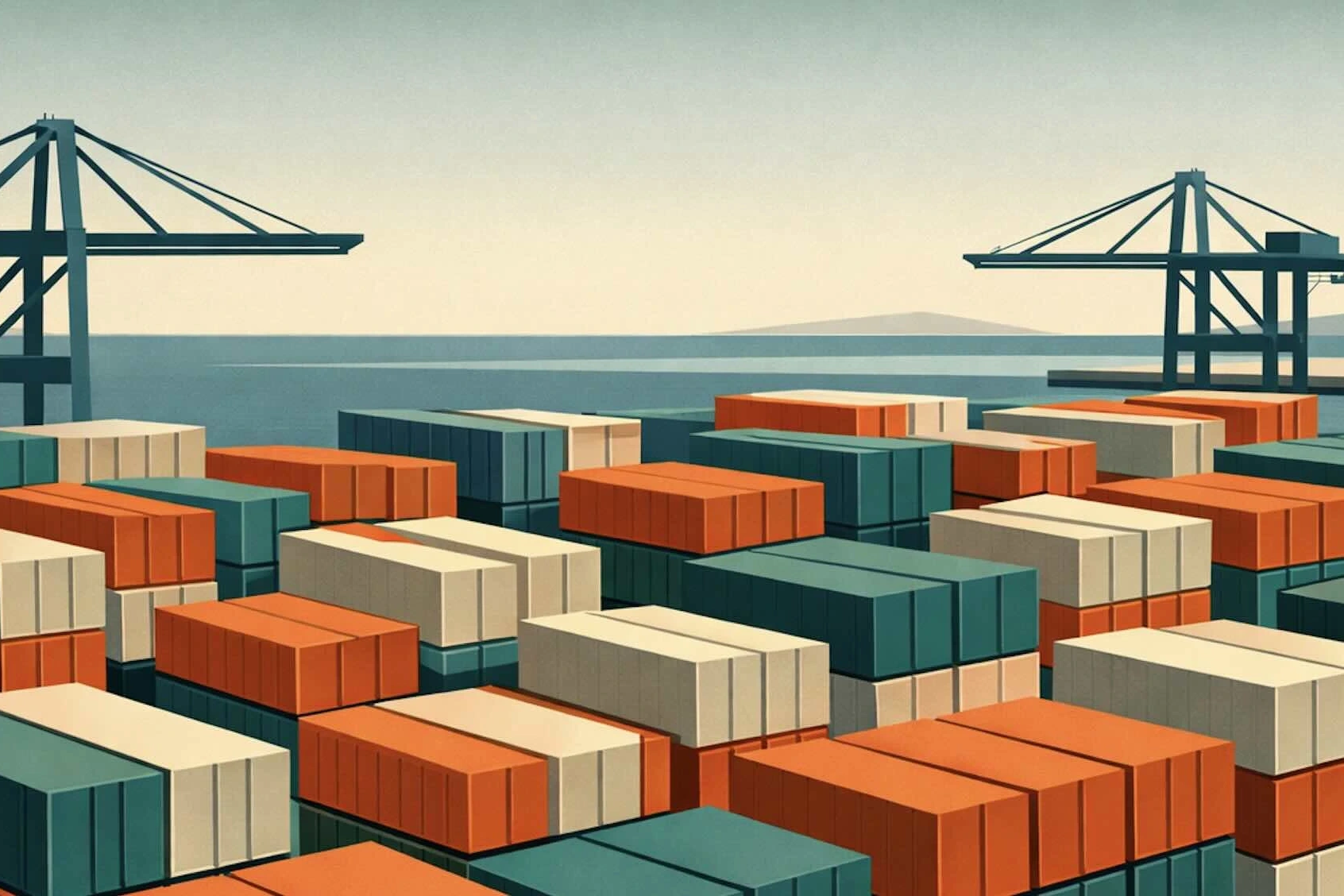Anže Logar, Minister of Foreign Affairs of the Republic of Slovenia.
We Can Adapt and Be an Active Partner
Jan Tomše
EXECUTIVE EDITOR AT THE ADRIATIC
What is important for the Western Balkans region now is the implementation of the Common Regional Market. If the Open Balkans initiative could give impetus to the implementation of the Common Regional Market, it would be good for the region, says Dr Anže Logar, Minister of Foreign Affairs of the Republic of Slovenia.
With Anže Logar, Minister of Foreign Affairs of the Republic of Slovenia, we talked about the achievements of Slovenia at the helm of the EU in the second half of 2021, today’s global challenges, and the Western Balkans’ opportunities and challenges in 2022 and beyond.
Slovenian presidency of the Council of the EU: which are the achievements the Slovenian diplomacy takes pride in, even though they might have occured outside media limelight?
The Slovenian Presidency of the Council of the EU is marked by dynamic developments in Europe and beyond. The uncertain epidemiological situation continues, and the world is facing several unexpected events – from the crises on the Belarus border and in Afghanistan, to new geostrategic alliances such as AUKUS – which called for a swift and determined reaction by the Presidency, all the while seeking consensus and demonstrating European unity.
Holding the Council Presidency entails complex legislative work as well as striking a balance between member states and the three European institutions – the Council of the EU, the European Commission and European Parliament.
At the outset of the Slovenian Presidency, we managed to seize the window of opportunity opened by the legislative procedure and a period of relatively limited spread of the pandemic, achieved progress in the long and tiring negotiations, which had not really been anticipated, and successfully completed the work on 20 legislative acts.
Furthermore, we stepped up the work on establishing the European Health Union that would facilitate member states’ dealing with transboundary health emergencies. We successfully concluded the negotiations on extending the mandate of the European Medicines Agency (EMA) and the strengthening of the European Centre for Disease Prevention and Control. Another important achievement is the agreement among Member States on the European Health Emergency preparedness and Response Authority (HERA).
A major success of the Slovenian Presidency are the endorsements by the member states of the Digital Services Act and Digital Markets Act, which lay down new rules for a safer and more open digital space.
As the country holding the Council Presidency, Slovenia coordinated the EU’s mandate for participating in the COP26 climate summit in Glasgow, where – together with the European Commission – it represented the EU in the negotiations with third countries. COP26 is an important step forward, keeping within reach the goal of the Paris Agreement to limit global warming to 1.5°C.
In foreign policy activities, I would like to point out the successful organisation of the EU-Western Balkans Summit on 6 October. It was attended by all the EU and Western Balkans leaders, who adopted the Brdo Declaration. It is particularly important that the EU reaffirmed its commitment to the enlargement process, and the Western Balkan partners reaffirmed their dedication to European values and principles and the need to implement the necessary reforms. The leaders also agreed to hold regular summits, with the next one to take place during the Czech Presidency.
We had invested a great deal of effort in the drafting of Council conclusions on enlargement and the stabilisation and association process, which were unanimously adopted by the General Affairs Council on 14 December and represent an important milestone in the process. Another notable achievement is the opening of Cluster 4 in Serbia’s EU accession negotiations (chapters on environment and climate change, energy, transport and Trans-European Networks).
Which are the main global challenges of today? More concretely, which are the main international challenges the EU is facing?
The world is facing challenges which were inconceivable only a decade ago: the COVID-19 pandemic, climate change, hybrid threats, cyberattacks, and new geopolitical divisions dictating that the existing multilateral system be upgraded with effective mechanisms. Another major challenge are the developments in the South China Sea; part of the attempts at addressing this issue is the EU’s Indo-Pacific Strategy. The occupation of Crimea continues, and the Russian Federation is massing military forces on the border with Ukraine, which is openly concerned for its safety. Other causes of concern include the rising energy prices and the question of strategic autonomy.
In multilateral forums, we can perceive growing polarisation between the democratic and non-democratic parts of the world; the concepts agreed decades ago and the “language” of the key rules governing the multilateral system are being eroded; new concepts undermine international frameworks and the human rights system. The instrumentalisation of international forums with various tactics, manoeuvres and procedures by the increasingly numerous and powerful autocratic regimes is causing further divisions and, consequently, undermines the efficiency and credibility of international organisations. The good news in this context is the US’s return to multilateral forums.
Slovenia is also striving to strengthen the EU’s common foreign and security policy and transatlantic relations, which is vital for resilience on both sides of the Atlantic and the best guarantee for enhancing the EU’s position.
How much international visibility and soft power has Slovenia built up? Where do you see Slovenia’s strong points, and which are the European strategic decisions that Slovenia, as a country, has a say in?
It is very simple: Slovenia has more clout now than a year and a half ago, and yet still not as much as it could have, given its international engagement, geostrategic position and state characteristics.
At the national level, we strive for reaching consensus when it comes to our fundamental foreign policy orientations. Therefore, during this mandate, we embarked on a review of our foreign policy strategy. After more than a year of intensive work within the Ministry and within the Strategic council of experts, we now have an updated document providing appropriate responses to contemporary challenges.
Slovenia is also striving to strengthen the EU’s common foreign and security policy and transatlantic relations, which is vital for resilience on both sides of the Atlantic and the best guarantee for enhancing the EU’s position.
In this regard, Slovenia endorses the strengthening of EU-NATO relations and of the EU’s resilience to hybrid threats, in the field of cybersecurity, military mobility, civil-military cooperation during crises and interoperability, as well as the institutionalisation of contacts between the two organisations. Resilience as a priority of the Slovenian Presidency enjoys wide support. In keeping with the Global strategy for the foreign and security policy of the European Union and the EU’s ambitions, Slovenia is actively involved in the process of drafting the Strategic Compass and is reaffirming its reputation as a credible, active and visible member state. The numerous successful Slovenian candidatures in international organisations in the last year are yet more proof that we are on the right track.
During the COVID-19 pandemic, Slovenia has proved its solidarity with developing countries; since 2020, it has allocated a total of EUR 5.2 million to help them fight the coronavirus. With a total of over two million doses of COVID-19 vaccines donated, it is one of the largest donors per capita.
THE REGION
How stable a region is the Western Balkans at the moment? Regarding its European perspective, was there any meaningful progress achieved during Slovenia’s EU Council presidency?
The situation in Bosnia and Herzegovina causes concern, particularly the deepening political and institutional crises. We support the internal political dialogue and the constructive initiatives and debates focused on helping the country and encouraging progress on its path towards the EU, as this is in our common interest. We are resolute in our calls for ending the divisive rhetoric, establishing functional institutions and continuing the reform process. Slovenia supports the unity, sovereignty and territorial integrity of Bosnia and Herzegovina.
The normalisation of Serbia–Kosovo relations also remains a major regional issue. A comprehensive and legally binding agreement must be reached, and it must cover the entire spectrum of outstanding issues.
Stability and sustainable development of the Western Balkans are in our vital strategic interest as the region lies in our immediate neighbourhood.
In the final weeks of its EU Presidency, Slovenia has endeavoured to find a solution that would enable the launch of accession negotiations with North Macedonia and Albania. Along with the EU-Western Balkans Summit and the participation of Western Balkan partners in the debate on the future of Europe, the conclusions of the December GAC on enlargement raise hope for future enlargement steps.
When speaking of the Western Balkans, we cannot ignore the issue of succession. For Slovenia, the full implementation of the Agreement on Succession Issues is of vital importance as it implies respect for the rule of law in the context of fulfilling the assumed international obligations. Slovenia has repeatedly pointed this out, including at the European level, most recently at the EU-Western Balkans Summit.
Countries of the Western Balkans are actively pursuing tighter integration with the EU common market. How do you see the Open Balkans initiative, announced a few months ago, that currently includes three countries – Serbia, North Macedonia, and Albania?
To boost the economic development of these countries, it is imperative that we strengthen connectivity between the EU and the region in transport, energy, digitalisation, sustainable development, environmental issues and green technologies.
In October 2020, the European Commission published the Economic and Investment Plan for the Western Balkans, which includes €9 billion from the pre-accession instrument. In addition, the Western Balkans countries will be given access to the Guarantee Facility and the European Fund for Sustainable Development Plus, which will enable them the opportunity to take out favourable loans. A nice detail I would like to mention – in my capacity as Slovenia’s high representative for relations between the Council and the European Parliament during the Slovenian Presidency of the Council of the EU, I joined President of the European Parliament David Sassoli in signing the agreement that enables the drawdown of these funds.
What is important for the region now is the implementation of the Common Regional Market (CRM). If the Open Balkans initiative could give impetus to the implementation of the CRM, it would be good for the region.
There are many areas where this kind of cooperation could accelerate the region’s inclusion in European business flows, among them regional trade, investment cooperation, digitalisation to include the Western Balkans in the European digital single market and regional cooperation in industry and innovation.
All this would bring tangible benefits for the business world and citizens of the Western Balkan countries as they advance on their European path.
What is the security situation in the region? How can Slovenia, which is both a EU member state and knows the region, contribute towards improving security in the region?
The Western Balkans are still faced with divisions and outstanding issues, the legacy of the traumatic experiences in the recent past, particularly during the dissolution of the SFRY. It is vital to achieve reconciliation, and improve neighbourly relations.
If this goal is to be met, the countries need economic development and discernible benefits for the people, brought about by the reforms that need to be implemented as part of their EU accession negotiations.
LOOKING INTO 2022
How successful has Slovenia been in taking advantage of its geopolitical potential as a centrally located EU country, and a bridge between the stable Western Europe and the less stable East?
The division into a stable West versus an unstable East sounds like a cliché. If you look at the political situation in the countries in the East of the EU, you can see that their governments are usually stable and their political agendas concrete. They also experience high economic growth. Nonetheless, the unification euphoria we witnessed after the fall of the Berlin Fall has faded, some unfulfilled promises and expectations have led to disappointments that have cooled relations, and the economic and health crises have further worsened the situation.
In my opinion, Slovenia’s advantage lies in its agility; it can adapt to new situations and knows how to be an active partner. It was this realisation that encouraged us to update the strategic document of Slovenian foreign policy.
If the Open Balkan initiative could give impetus to the implementation of the CRM, it would be good for the region.
As Slovenia’s Minister of Foreign Affairs, where do you see the main challenges facing the Western Balkans as a region? How can economic diplomacy help?
Stability is a key challenge, particularly when it comes Bosnia and Herzegovina and normalisation of relations between Serbia and Kosovo. The continuation of the enlargement process with Albania and North Macedonia – in the package – is also of utmost importance. This is a most quickly achievable goal, a positive message the EU could convey to the region. Progress on these three issues would have a positive practical impact on improving the economic situation. However, it is also true that entrepreneurship, which is inherent to the people of Western Balkan countries, puts pressure on the political leadership to find solutions. And we should use this leverage to greater advantage.
Another important topic is the promotion of economic cooperation with the region. We know from our own experience the major role that international trade and foreign investments play in the transformation of countries in transition. At the end of 2020, Slovenian companies held €2.5 billion of investments in the Western Balkans, which is more than one third of all Slovenian outward investments.
From the standpoint of economic diplomacy, where are the biggest challenges, and opportunities, for Slovenian exporters seeking new market niches? We know that corporations have already started to shorten their supply chains, or put differently, to relocate production into geographically nearer countries with more stable business partnerships.
The answer is very simple: increasing added value, and achieving better positioning in supply chains. For this to be achieved, we need further investment in research and development. I see one of the opportunities in the EU recovery and resilience fund, which – with additional funds for a green and digital transformation – will give the Slovenian economy comparative advantages in the relatively large Western Balkan market.
Economic diplomacy has long been striving to bring Slovenian and foreign scientific or research institutes together, and connect them with innovative Slovenian companies with high added value.
In your opinion, which is the single biggest opportunity that Slovenian exporters still haven’t taken advantage of?
This depends on the market they want to export to. The European market is subject to market competition rules – the better they perform, the more they invest in the international network of contacts, and the more products with high added value they develop, the greater the chance of success. At the same time, it is worth considering some of the more closed or remote markets. This is where economic diplomacy can significantly contribute to strengthening bilateral trade. And that is why, during this mandate, we have intensified our activities in opening diplomatic missions and consular posts in the regions and continents where we had not previously been present, because such presence can play a significant part in entering into economic agreements.
Would you like to point to any outstanding goals you intend to fulfil during this mandate?
When I became Minister of Foreign Affairs back in March 2020, I set myself a very clear goal: to strengthen Slovenia’s activities in the European and international arenas. We at the Ministry have been working in this spirit for the past two years. Despite the challenging circumstances related to the COVID-19 pandemic, I participated in all major international forums in person or virtually, we carried out 61 bilateral visits abroad, and welcomed 43 foreign ministers and high-level guests to Slovenia. As I have already mentioned, we set up an informal C5 group, were invited to join the EU Med Group (formerly MED7) following extensive diplomatic efforts, established a permanent dialogue with Italy and Croatia on the management of the Adriatic Sea, relaunched and significantly strengthened transatlantic relations, established a strategic dialogue with the US, and carried out the Presidency of the Council of the EU. We also opened 3 new embassies (Dublin, Seoul and Riga) and a consulate in Milan to improve the representation of Slovenia abroad. All in less than two years. This is what we call “active diplomacy”. Diplomacy that does not limit itself. I am proud of our diplomacy because it has put Slovenia back on the map of countries that can make a difference at the international level.
Are we going to stop here? Certainly not. In 2022, we will continue to expand our diplomatic network by opening at least one more embassy. We have also decided to present a candidature for a non-permanent seat on the UN Security Council for the 2024–2025 term. We will continue to engage in active diplomacy and make effective use of the resources we set up for the Presidency of the Council project. We are not only strengthening our presence within the UN system, but also our dialogue with all of the key global players, including the countries that are particularly important for the Republic of Slovenia and its foreign policy and economic interests. I therefore see no reason to stop!
THE ADRIATIC
This article was originally published in The Adriatic: Strategic Foresight 2022
If you want a copy, please contact us at info@adriaticjournal.com.

